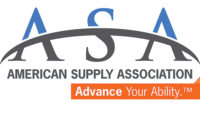The Air Conditioning, Heating, and Refrigeration Institute (AHRI) today supported President Obama's call for Congress to enact legislation to encourage consumers to purchase and install highly energy efficient HVAC and water heating equipment. In remarks made while touring a training facility at Savannah Technical College, the President outlined more details of a new "HOMESTAR" program that would help create jobs by encouraging American families to invest in energy saving home improvements. Obama called on Congress to include the program in the next iteration of legislation designed to create jobs.
AHRI has been working as part of a coalition of groups to enact such a program, and is very supportive of the President's call. "We are thrilled to have the solid backing of the White House in this effort," said David Calabrese, AHRI Sr. Vice President for Policy. "For several years, AHRI has been working with Congress to enact incentives to help replace the nation's installed base of heating, cooling, and water heating equipment. This program would go a long way toward making that goal a reality," Calabrese said.
Background on the HOMESTAR program (from the White House press release):
With unemployment in the construction sector near 25% and with substantial underutilized capacity in our manufacturing sector, the HOMESTAR program has the potential to jumpstart our economic recovery by boosting demand for energy efficient products and installation services. For middle-class families, this program will help them save hundreds of dollars a year in energy costs while improving the comfort and value of their most important investment - their homes. In addition, the program would help reduce our economy's dependence on oil and support the development of an energy efficiency services sector in our economy. Key components of the HOMESTAR Program include:
About AHRI
The Air-Conditioning, Heating, and Refrigeration Institute (AHRI) is the trade association representing manufacturers of air conditioning, heating and commercial refrigeration equipment. An internationally recognized advocate for the industry, AHRI develops standards for and certifies the performance of many of these products. AHRI's 300 member companies account for more than 90 percent of the residential and commercial air conditioning, space heating, water heating, and commercial refrigeration equipment manufactured and sold in North America.


